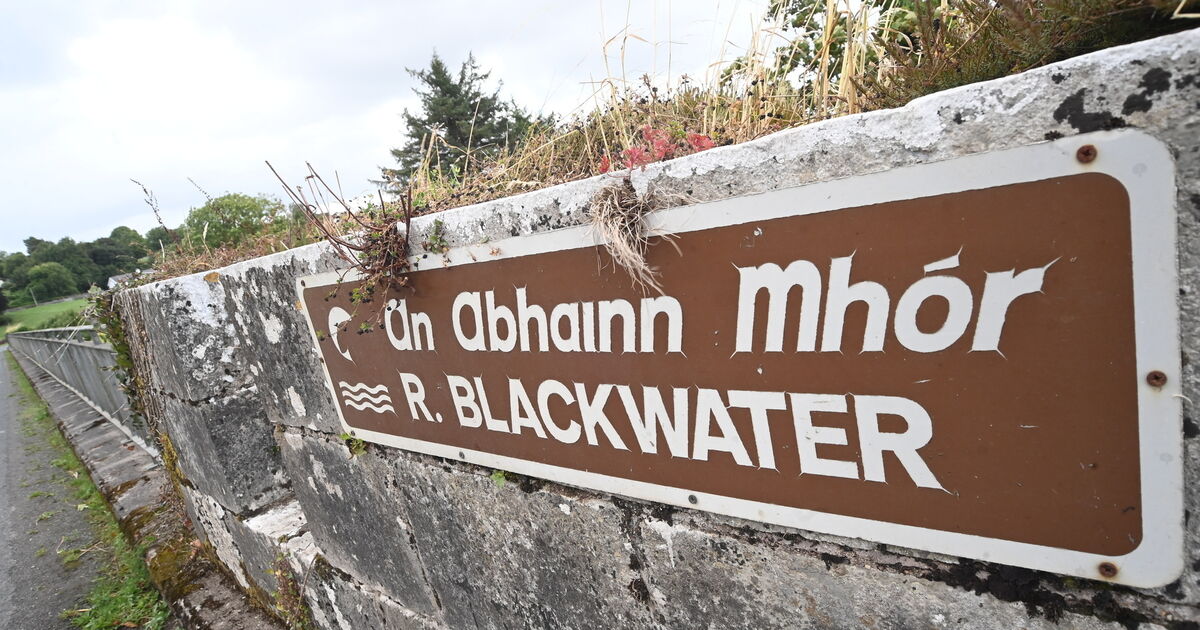A small stream flowing behind John Flynn’s North Cork home was a haven of peace and tranquillity. But in the past fortnight, the flowing waters have instead become a source of stress and anxiety, given the high numbers of dead fish he has seen in the stream since August 12.
But now he is one of hundreds of anglers who have been affected by the deaths of an estimated 46,000 fish in the waters of the Blackwater and tributaries over a 30km stretch from Roskeen in Lombardstown to the bridge in Killavullen.
The vast majority of the fish killed are brown trout, according to Inland Fisheries Ireland.
Salmon are also among the casualties, according to local anglers, including John Flynn.
Mr Flynn, who is secretary of Killavullen Angling Club, said: “I am fishing this river for more than 50 years, since I was a young fella.
“I have seen fungal outbreaks in fish but they would normally not affect all the fish, and it would be a slow progress.
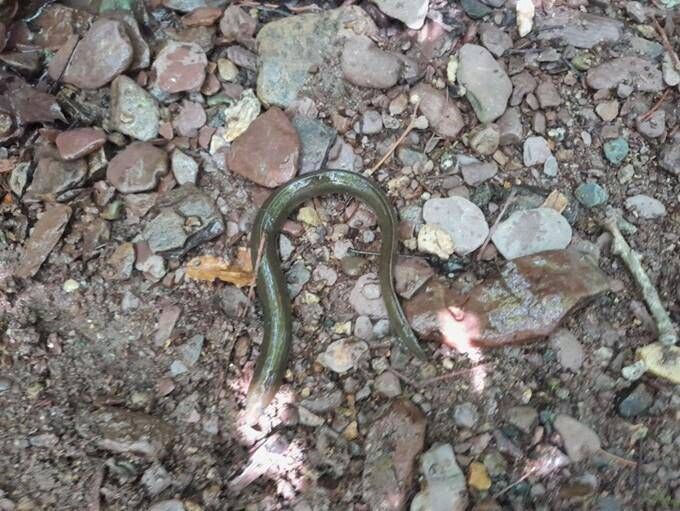 Inland Fisheries Ireland is investigating the Blackwater fish kill in Cork. Pictured is a dead European eel.
Inland Fisheries Ireland is investigating the Blackwater fish kill in Cork. Pictured is a dead European eel.
“For example, in the springtime, we might see some salmon get a fungal outbreak on them and they would change from saltwater to freshwater but it would only be a small percentage.
The last big one I saw like this would have been back in the early 1970s. That was nothing like this — we have deaths now among the most resilient fish to pollution in the river.
He added: “I have seen infections before in fish but nothing like this, and it just happened so fast.
“I would know most of the river like the back of my hand and there are other anglers who started fishing the same time as me and they are in a desperate state. Nobody can understand it.”
Grimly, he said: “I am looking out at the river now and it just looks dead.
“Last night, I went for a walk and I could not bring myself to look into the stream because there was a tear in my eye. I just felt sick.
“I am retiring this year and my dream after 40-odd years working was that I would be able to go fishing when I’d want. It is devastating for everyone.”
For John Ruby, chairman of Mallow angling club, there are similar feelings, as he also lives close to the river.
He is a trout angler and says that the river Blackwater holds mostly trout, but there are also some salmon.
He explained: “There would be more trout in the river — they are there all year round, but salmon are a migratory fish so you have to have the weather for them to come. Trout fishing is there any time in the season from February to the end of September.”
He said trout anglers are hopeful that “Mother Nature will kick in” and that enough brown trout will remain in the affected stretch of water to ensure that new trout will come through for future seasons.
However, fishery owner and chairman of Killavullen Angling Club, Conor Arnold, has fears for the next few years regarding salmon in the river and its tributaries.
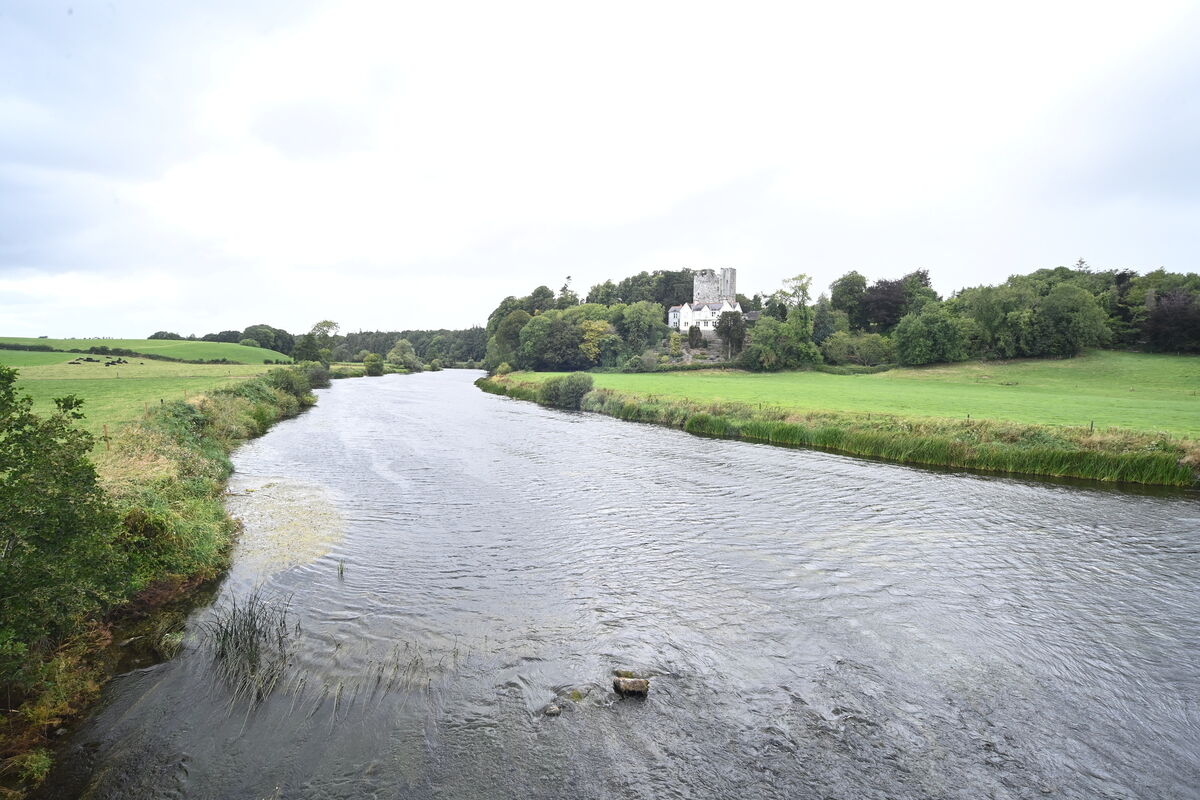 The River Blackwater at Ballyhooly, Co Cork. File picture: Larry Cummins
The River Blackwater at Ballyhooly, Co Cork. File picture: Larry Cummins
He says: “I have a salmon fishery on the Blackwater from Castletownroche to near Ballyhooly — all in, it is six and a half miles of the river.
All of the other fisheries downstream from me have been asking me to see what the story is because they have not received any notification from anyone regarding what precautions or procedures they should be taking.
He added: “We have no clue how far-reaching it is. Is it being diluted and going down the river perhaps not at a fatal level downstream.”
He says his fishery is closed and is likely to remain so for the remainder of the fishing season.
“I teach as well — I am a fly-casting instructor. I would have up to 12 to 14 people a day fishing. And I would be doing courses as well.”
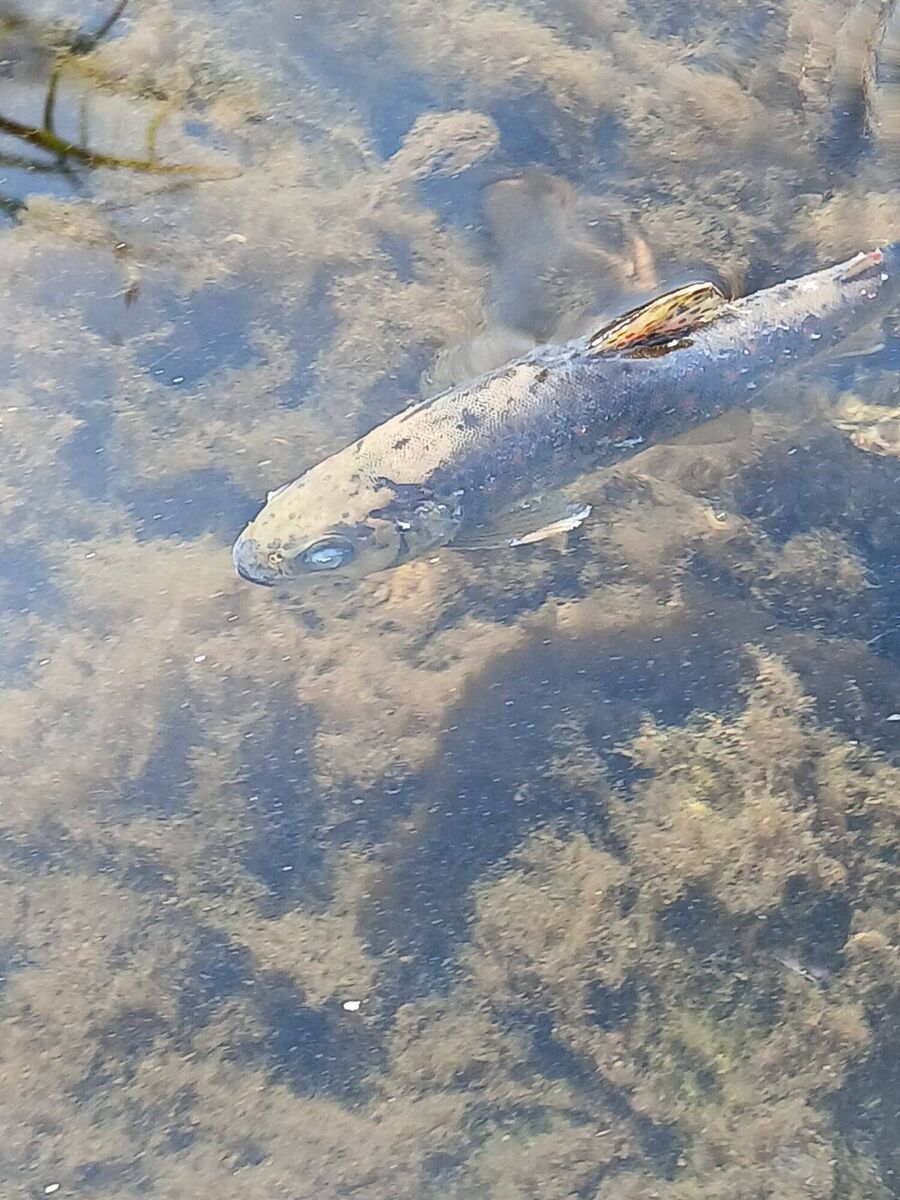 The fungal infection outbreak may have killed tens of thousands of fish in a long stretch of the Munster Blackwater in County Cork.
The fungal infection outbreak may have killed tens of thousands of fish in a long stretch of the Munster Blackwater in County Cork.
He says he has not had time as yet to work out how much of a loss he will suffer as a result of the catastrophe.
He points out that vast numbers of foreigners come into the Blackwater area for fishing, from the UK, France, Germany, and Italy, as well as the US. He said:
I have had to contact people to tell them I am closing for the foreseeable future.
He continued: “Judging by the amount of fish that have been killed and the amount of juvenile salmon that were seen [among those], the next three or four years there will be nothing to fish for.”
John Flynn says that salmon “are on the verge of extinction anyway and we are pressing to get catch and release done and now the salmon parr are dead and it takes four to five years before they move out of the river and go to the sea and then come back.
“So you are talking about five years minimum. And if the salmon come in and spawn in October and November, and the river is infected, that is another generation gone.”
Mr Ruby said that there is a great passion for fishing in the area but “it is so depressing at the moment and there is a deadness around the place, especially around the river — it is silent”.
He continued: “We don’t know what the future holds for us, with it still ongoing. We have no answers from the scientists or the government bodies. It is the not knowing that it is the hardest part of it and the hoping that it will stop — every day there are more dead fish.”
Mr Ruby said that normal pollution in Irish rivers is typically either sewerage or slurry, which can be seen and smelt. However, he said:
This is invisible, whatever it is. Hopefully the scientists can pick up on it.
John Flynn says that the absence of information is leaving a “huge vacuum for speculation”.
While the Marine Institute have taken samples from some fish, it will be a further two weeks at least before a result will come through, to establish the cause of the deaths.
However, anglers and wildlife enthusiasts are not just concerned about the deaths of fish — they also have concerns about the effect on other wildlife including herons, kingfishers, and otters, particularly given that a small number of dead birds have been seen in the area in recent days.
John Flynn says: “There are swans that drink and eat in the river, there are otters, kingfishers, herons — it is all going up the food chain.”
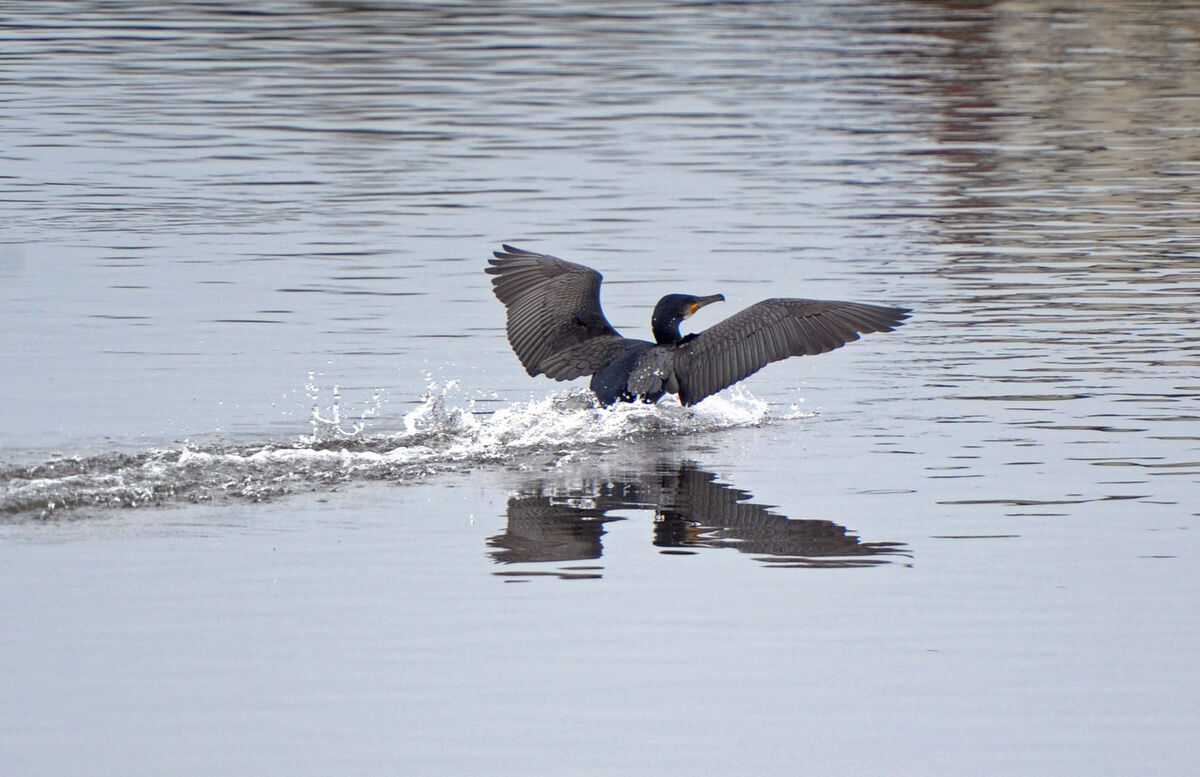 A cormorant landing in Cork. The seabird does hunt inland but John Ruby was disturbed by the sight of an apparently disoriented bird near his home on Sunday. File picture: Denis Minihane
A cormorant landing in Cork. The seabird does hunt inland but John Ruby was disturbed by the sight of an apparently disoriented bird near his home on Sunday. File picture: Denis Minihane
For John Ruby, one of the most concerning elements of the current scare was the presence of a cormorant near his home in Mallow town on Sunday evening.
He said that he heard a thump on the ground and saw the bird on the road, before it managed to fly off to a nearby roof and then disappear.
Mr Ruby described the bird as being disorientated, explaining that cormorants are never seen near people or in built-up areas.
Cormorants are predators which can consume close to 1kg of fish a day and are typically sea birds which sometimes come inland.
“We are hoping that the live fish we are seeing in the river can still make it through it,” Mr Ruby said.
“There are live ones but they have a fungal disease on them as well.
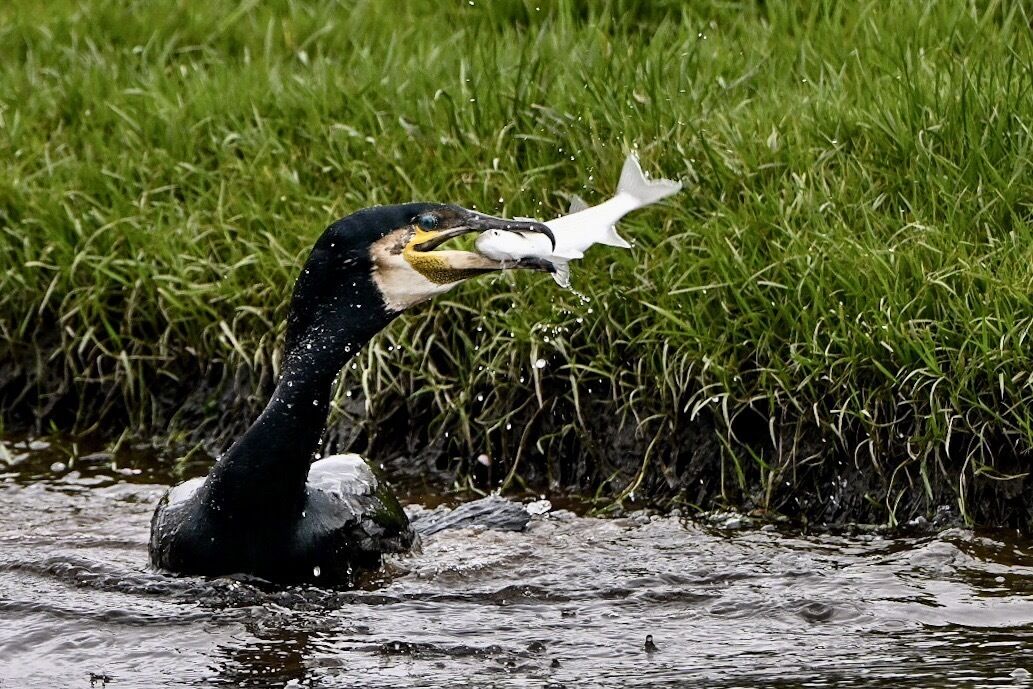 A cormorant catching fish near the Marina in Cork. The predatory seabird does occasionally come inland and can consume up to 1kg of fish a day. File picture: Chani Anderson
A cormorant catching fish near the Marina in Cork. The predatory seabird does occasionally come inland and can consume up to 1kg of fish a day. File picture: Chani Anderson
“There are some fish that are gone out of the main stream but we don’t know if they have enough oxygen and food for them to survive. A lot of fish that were healthy could possibly die of starvation.”
John Flynn highlights that many of the fish that are alive are stressed:
“There are fish coming up the stream at the back of my place, in desperation, some of them are on their back, trying to swim.
“It is horrific to see that.”
The anglers are speaking to the Irish Examiner ahead of a meeting between angling representatives and senior officials of Inland Fisheries Ireland on Friday.
In a statement on Tuesday, the body said that the Environmental Protection Agency, which has been liaising with IFI’s lead senior fisheries environmental officer throughout the Blackwater investigation, “inspected water treatment plants and licenced commercial discharges in the affected area”.
The statement added: “The EPA’s preliminary results did not report anything of concern”.
The statement continued: “In addition to high temperatures and low flow conditions at the River Blackwater, underlying water quality issues, over a period of time, may be a contributory factor in the fish kill in Cork.”
The acting chief executive officer for Inland Fisheries, Suzanne Campion, will be among the officials meeting with anglers’ representatives on Friday.
Ahead of the meeting, she said: “IFI’s primary function is to protect and manage freshwater fish and their habitats.”
She acknowledged that the fish kill is “very distressing for anglers and others who enjoy the river.”
She said it is also a source of distress for staff of the IFI who, she said, had devoted many years to caring for fish in the catchment area.
She added: “We await a report on the event from the Marine Institute to try establish a cause of the fish mortalities. Our dedicated staff will continue to actively monitor the river to assess the scale of the incident.”
Inland Fisheries Ireland estimate that between 8,000 and 10,000 fish have died in the River Blackwater within the past 10 days — less than a quarter of the 46,000-fish figure which local angling groups estimate have died in the incident since August 12.
She said: “Estimating the number of mortalities in a fish kill is always difficult as many dead fish will be taken by predators, caught under banks out of sight, will sink to the bottom of pools or be washed downstream. It is also possible that the same fish may be reported by different observers.”
She added: “The Marine Institute advice provided to IFI is that there is no precedent for dead fish to be removed from the river. Deceased fish should be left where they are found.”
For conservation group Salmon Watch Ireland, the developments at the Blackwater are of grave concern, and without clear information as yet on the cause of the fish deaths, there is worry about whether pollution could have caused the kill.
Although there has been no evidence of pollution to date in the investigation, spokesman John Murphy said: “This tragic event highlights the ongoing pressures on the catchment, which continues to suffer from excessive nutrient inputs linked to agricultural intensification and inadequate wastewater treatment infrastructure.
“In addition, several licensed discharge points associated with dairy processing and other industries contribute further stress to the river system.”
Mr Murphy continued: “While such licences may be deemed acceptable under normal conditions, the reality of increasingly frequent low rainfall and higher water temperatures significantly reduces the river’s capacity to assimilate these discharges.”
The Salmon Watch Ireland spokesman said current weather conditions have already resulted in extensive algae growth on the riverbed.
He said: “The subsequent die-off of this algae can rapidly deplete dissolved oxygen, causing major mortality among fish and the invertebrate species that sustain the ecosystem.
“Elevated water temperatures compound this oxygen loss. Fish weakened under such stressful conditions are also far more vulnerable to secondary impacts such as fungal infections, further accelerating mortality and undermining the long-term resilience of populations.”
While the scale of the Blackwater fish kill is large, there have been others in different parts of the country this year.
They include more than 1,000 fish in the Ballinagh River in Cavan, and 1,500 brown trout and European eels after a pollution incident, on Ballybrack stream, a small tributary of the Douglas River flowing near Douglas village, Cork city.
Earlier this year, there have been a number of convictions for pollution of rivers, including Tirlán and Uisce Éireann, as well as a wind farm company, a construction firm, a cheesemaker, and a gravel supply company.
In Tipperary, where anglers are concerned about pollution in rivers, chairman of Thurles angling club, JP Butler, said there have been no recent fish kills but he is a member of Mallow angling club too.
He feels that it is time to tackle legislation governing water pollution given that the legislation has not been amended for decades.
He says that penalties are too small, especially in situations where large companies are responsible.
For example, last November, Uisce Éireann was fined of €3,500 for a breach of Section 171(1) of the Fisheries (Consolidation) Act 1959, and payment of €3,267 in costs, following a fish kill of at least 5,000 fish in the River Allow from the Freemount water treatment plant in June 2024.
For now, there are no answers for anglers at the Blackwater stretch which have been affected by the current fish kill.
John Ruby says that knowing there are so many dead fish in the river is upsetting, particularly as anglers use fishing as a get-away-from-it-all exercise.
He explained: “You can have all the stress in the world and you could go to the river for an hour or two and just forget about everything. It is a great stress reliever. You are engrossed in nature.”

